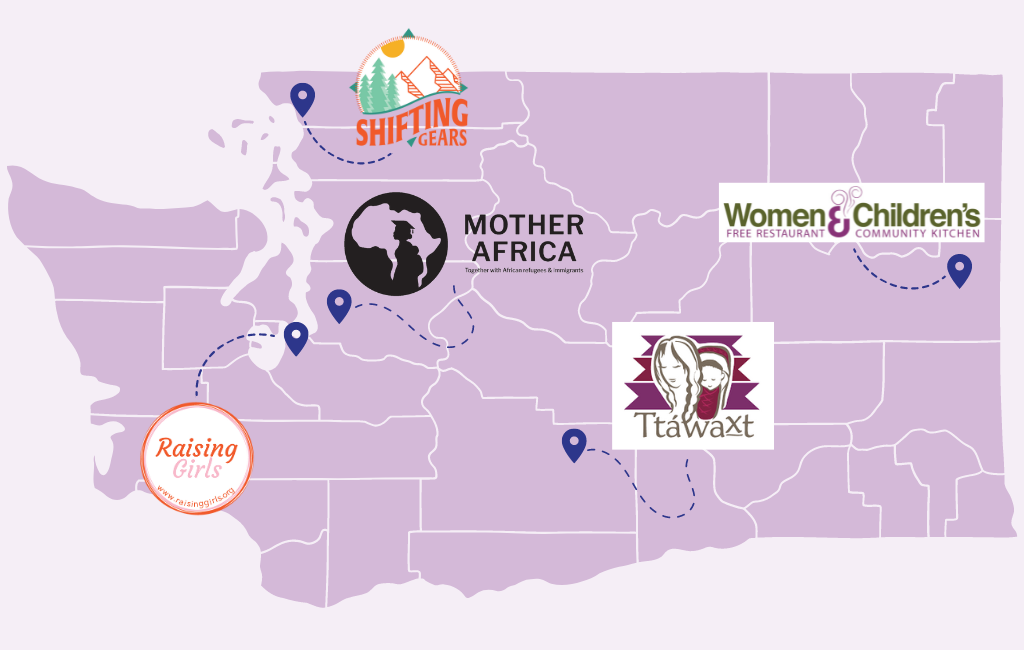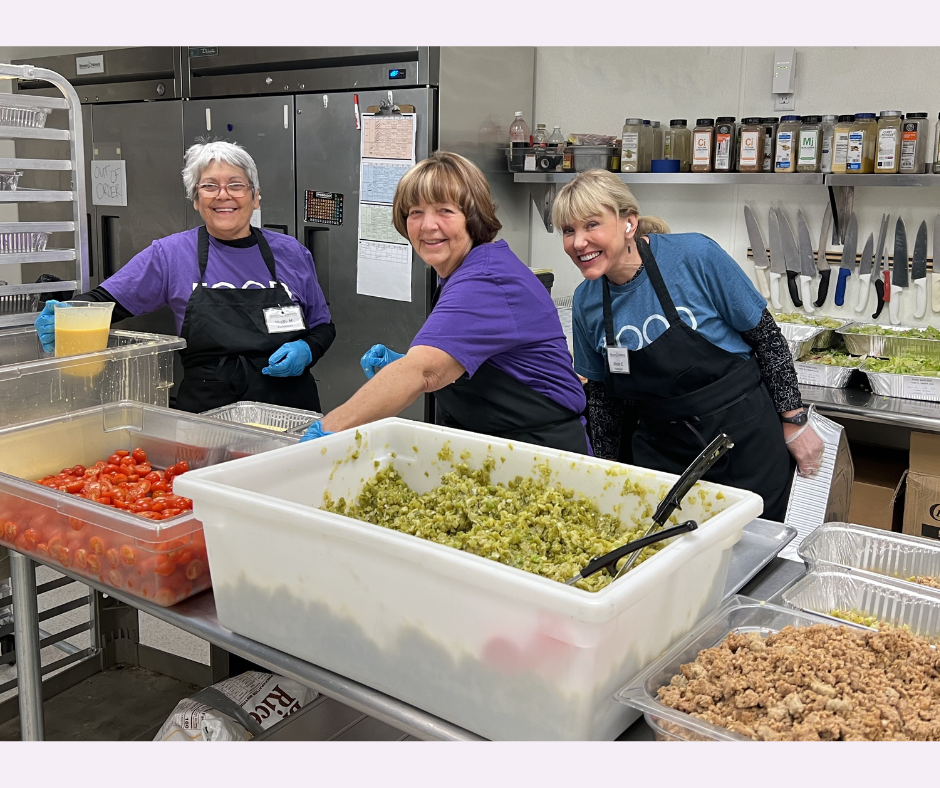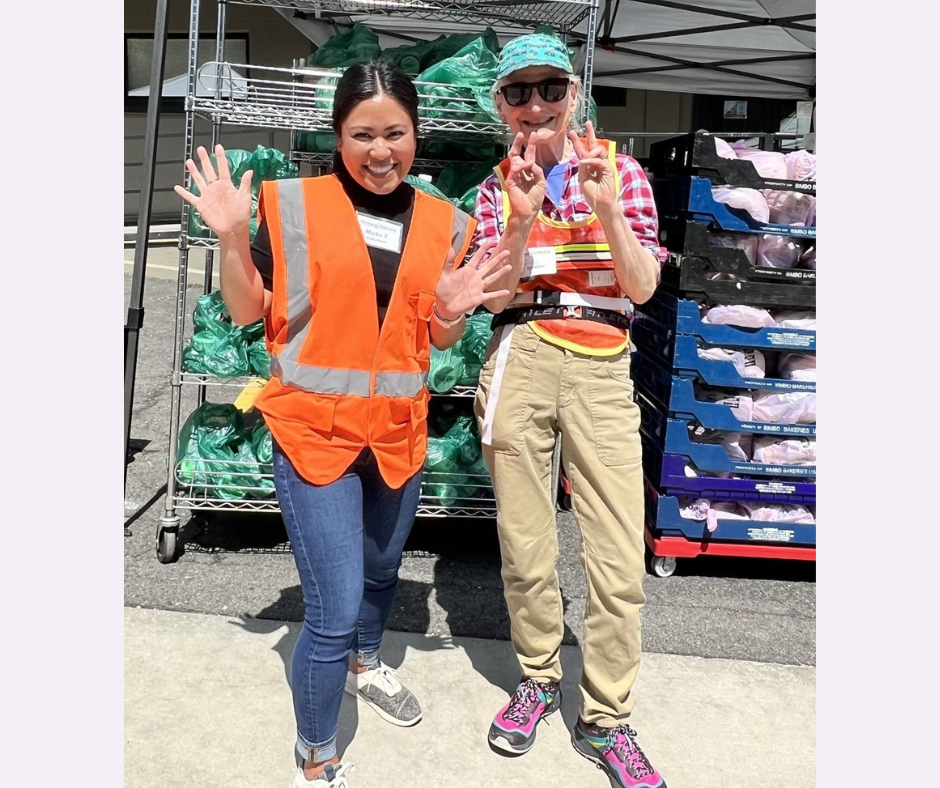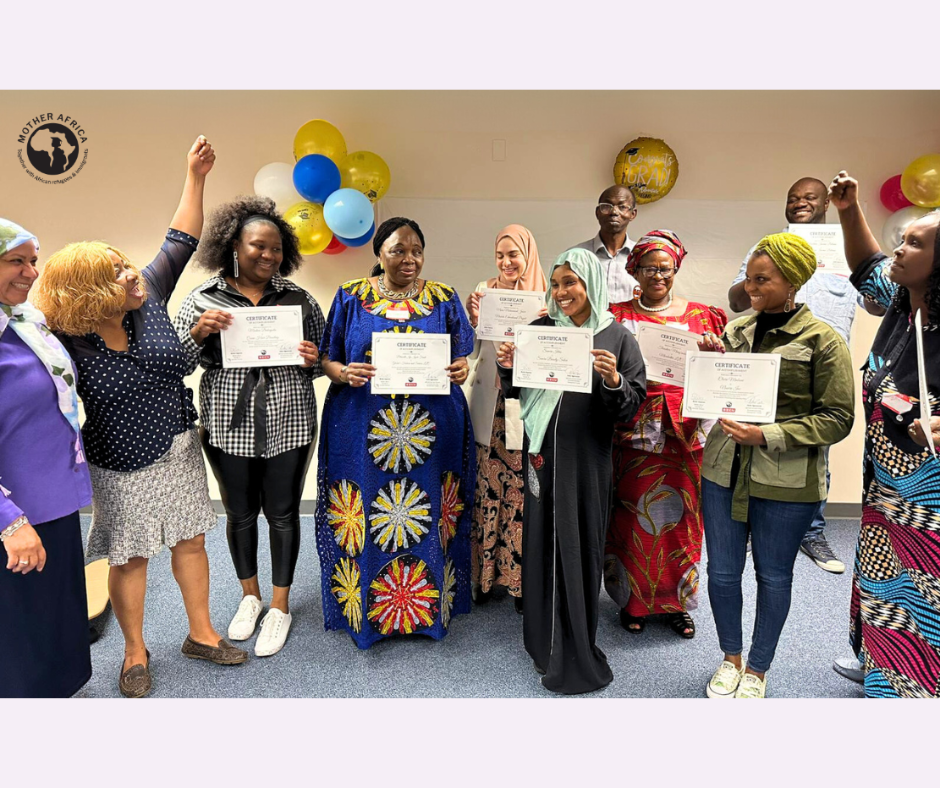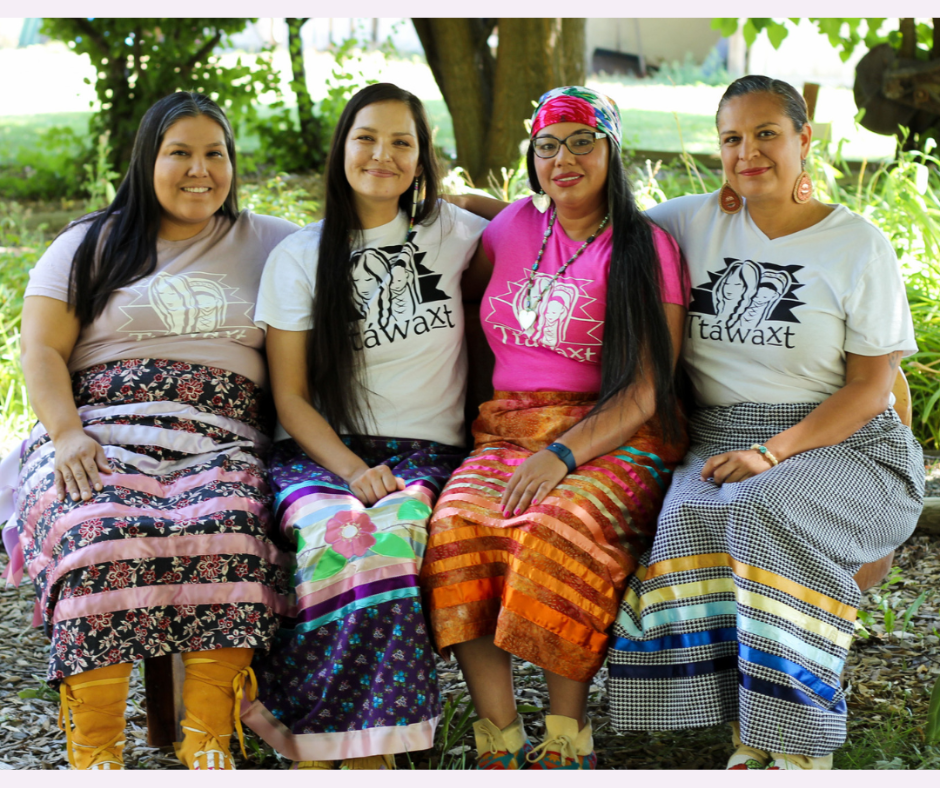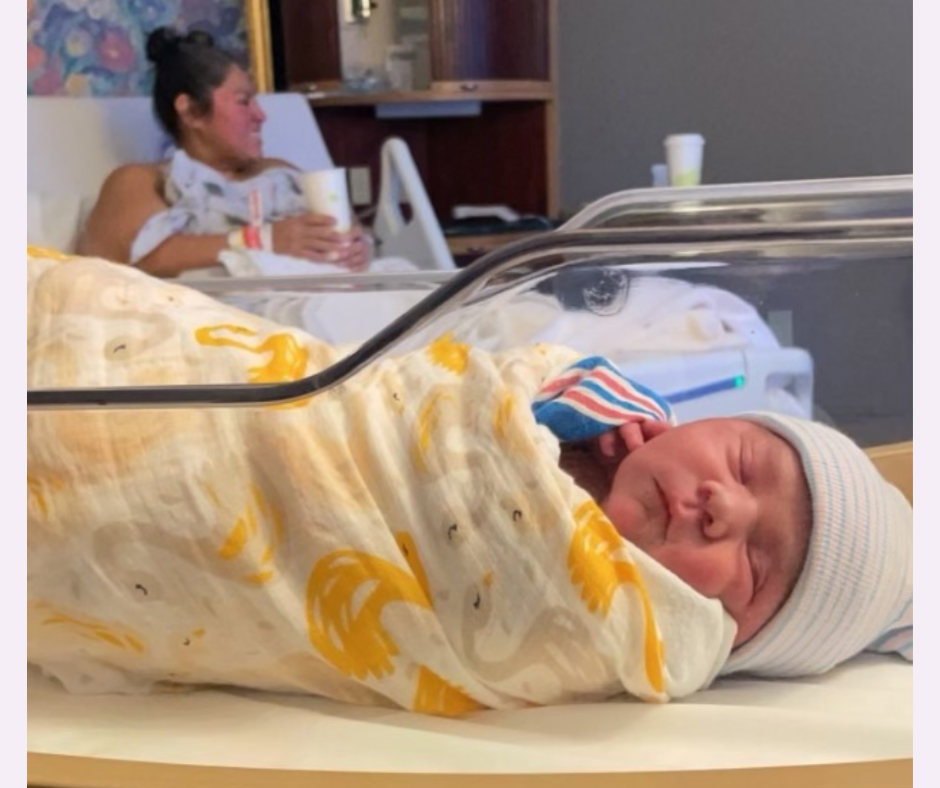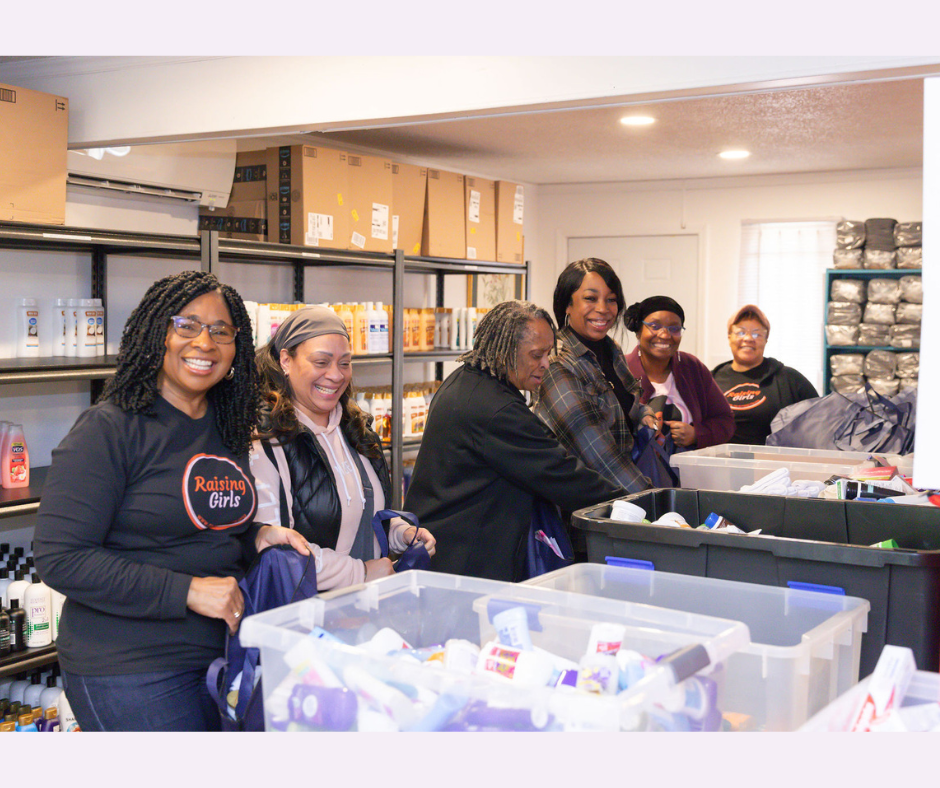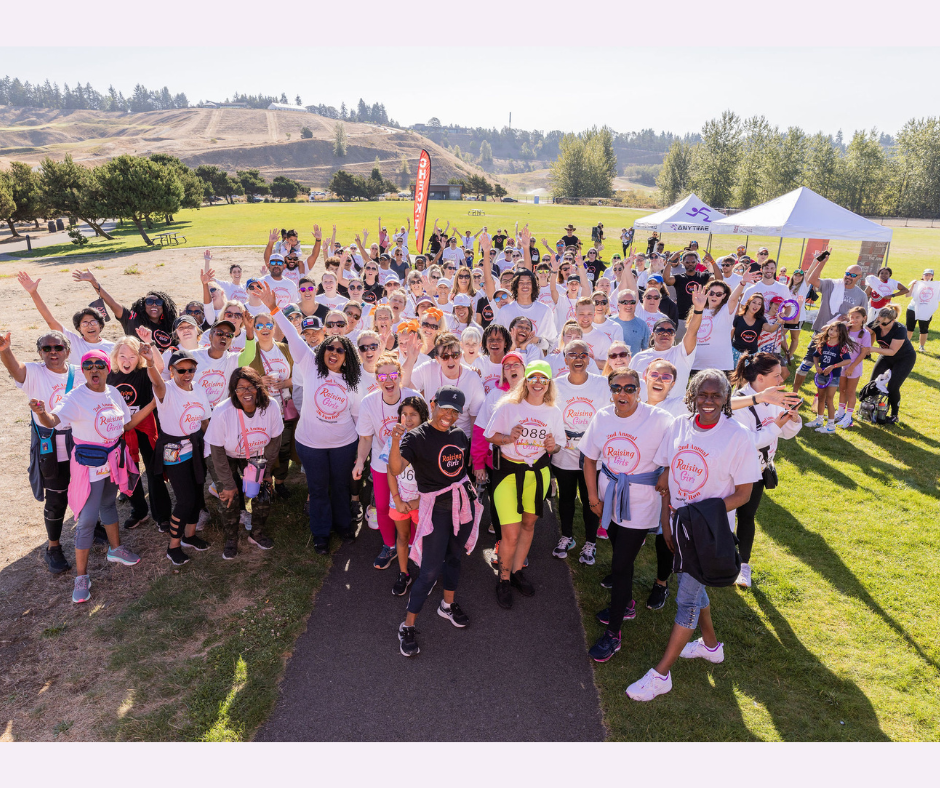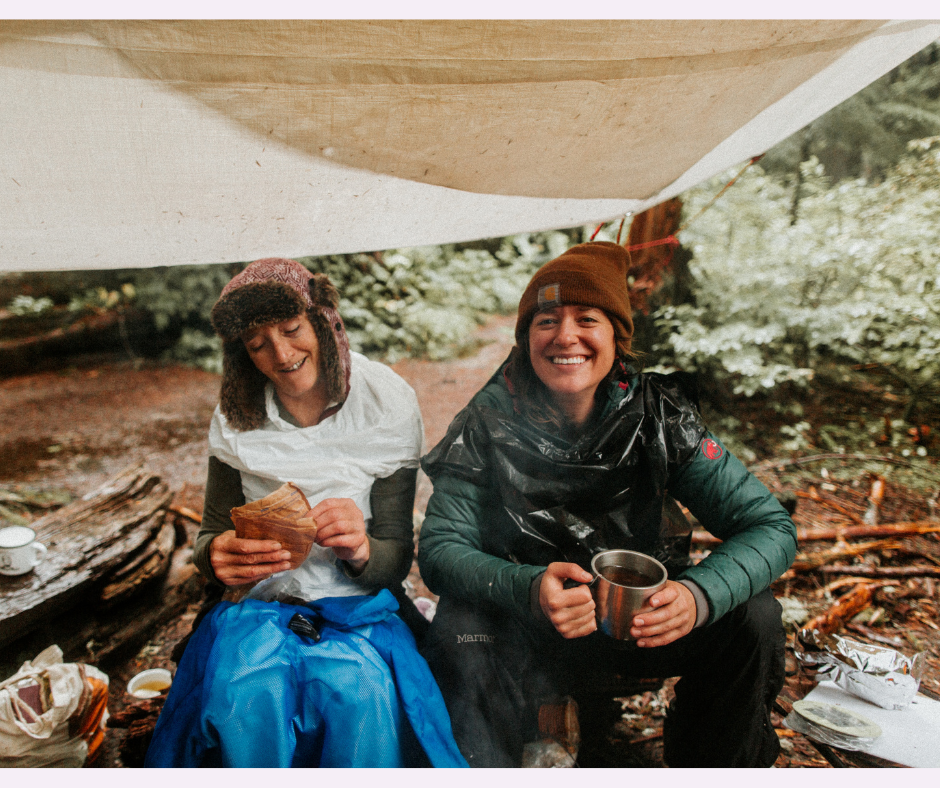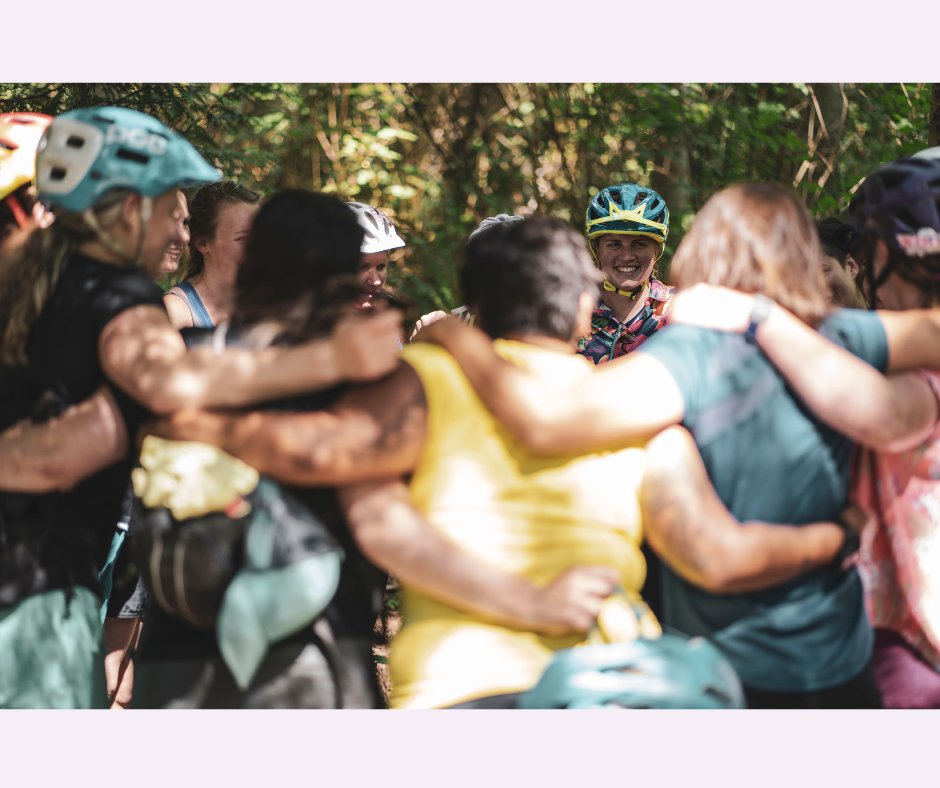Doing the Work: Women MAKING History Month Organization Spotlight
This year, Governor Jay Inslee officially proclaimed March “Women MAKING History Month.” This change from Women’s History Month is a call to acknowledge the work that stills needs to be done for every woman & girl in Washington to be healthy, safe, prosperous, and empowered to achieve their full potential. It’s also a moment to pause and recognize those currently championing causes to move our state closer to that goal.
As a part of Washington State Women’s Commission’s Women MAKING History month celebrations, we spotlighted impactful organizations actively working to improve the daily lives of women & girls across our state.
We titled the series, “Doing the Work”, highlighting 5 organizations’ relentless efforts to uplift, empower, and protect women & girls across Washington. With 3.8 million women in the state, their collective effort, alongside the dozens of other organizations dedicated to women & girls, are invaluable.
Women & Children’s Free Restaurant & Community Kitchen: Food is Love
Since 1988, Women & Children's Free Restaurant & Community Kitchen (WCFR) has worked to ensure that of all the worries women in Spokane must deal with, food insecurity is not one of them.
WCFR started off as a safe refuge, especially for women fleeing gender-based violence, to bring their children and have a nourishing meal. As the needs of women in and around Spokane have changed, so has WCFR.
The organization experienced a major shift in recent years. The COVID-19 Pandemic put additional strain on women supporting their families by disproportionately harming their roles in the workplace, financial progress, and overall health.
In 2019, WCFR provided 100,000 meals. Since 2020, the organization has provided over 1 million meals every year.
With rising grocery prices, WCFR continues to see a high level of need. Through innovative strategies like redirecting food from landfills, donations from the community, and with the ability to purchase fresh, quality food directly from Washington’s leading agriculture industry, WCFR has been able to increase their services ten-fold.
Today, WCFR primarily supports working mothers and seniors with limited, fixed incomes. They provide healthy, chef-prepared meals, fresh food, and shelf-stable groceries for women to enjoy with their families at home. WCFR also delivers food to 21 other nonprofits assisting individuals with housing, employment, childcare, and education as well as organizations that center LGTBQ+ equity.
WCFR staff and volunteers share the belief that everyone deserves good food. Every day, they work to ensure that women of all ages, races, and ethnicities know where they can find support.
"We have the rare privilege of serving thousands of women who are their families’ caregivers, nurturers, and breadwinners. It may be the most challenging work we’ll ever do, but the rewards are immeasurable."
Information, photos provided by Lisa Diffley, Executive Director, Women & Children’s Free Restaurant and Kitchen.
Mother Africa: Empowering Immigrant & Refugee Women
In Washington and across the country, immigrant and refugee women and families are some of the most underserved communities facing numerous barriers to health, safety, and economic empowerment. Mother Africa’s core mission is to provide the support immigrant and refugee families need to thrive.
At Mother Africa, women are the center of family and community. It is from this lens they work with families from over 35 countries in Africa and the Middle East. Their communities speak several languages including Arabic, French, Swahili, Lingala, Kinyarwanda, Kirundi, Kikuyu, Amharic, Moore, Dioula, Ndebele, Zulu, Shona, Tigrinya, Dari, and Mai Mai, and more. The organization provides resources in their communities’ native languages, offering a sense of familiarity.
African immigrant women and families in and around Kent have access to 7 uniquely tailored programs through Mother Africa. These programs are designed to address fundamental needs like housing, health, and childcare and empower these communities to establish independence and plant roots in their adopted home. Mother Africa’s programs include the SAFARI program for general case management and referrals, Youth Program, Environmental Justice Program, Flourishing Under Five Program for supporting mothers with young children, Resilient Elders Program, Economic Empowerment Program, and Refugee Youth Mentorship Program.
Mother Africa uplifts immigrant and refugee families while changing the false narrative that they are merely recipients of services. Instead, the organization and the communities it serves send the message that Immigrant and refugee women hold the potential to make meaningful differences beyond their communities and help transform Washington into a place where everyone has equal access to opportunity.
We asked Mother Africa why their team is drawn to this work.
“…We are passionate about promoting racial equity and social justice… Our team consists of individuals from the very communities we serve, each driven by a shared desire to foster a more equitable and inclusive society for all.”
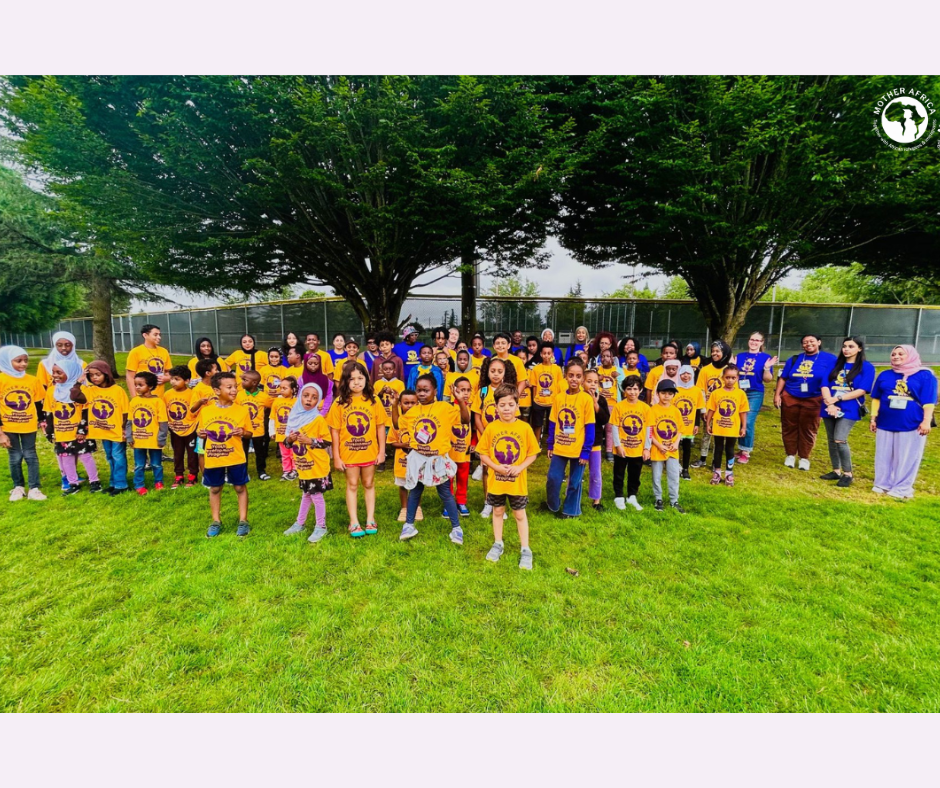
Information, photos provided by Wiqaa Al Jubeer, Communications Coordinator, Mother Africa.
Ttáwaxt Birth Justice Center: Ancestral Practices as Protection
In the United States, more people die from pregnancy and childbirth than any other high-income country. Marginalized communities, and communities facing additional structural inequities are particularly at risk.[1]
In Washington State, Native American women are at a higher risk of dying from pregnancy-associated or pregnancy-related causes than any other group. According to a study released in July 2023, mortality rates for American Indians and Alaska Natives have only gone up in the last two decades.[2] Washington’s Department of Health found that of all pregnancy-related deaths from 2014-2020, 80% could have been prevented if not for some clinical or social factor contributing to the loss of a mother, or expectant mother.[3]
Ttáwaxt Birth Justice Center works to reduce both maternal and infant mortality by bringing together ancestral, indigenous knowledge and practices, and westernized medicine. Their all-women team of indigenous birth workers bring a wealth of knowledge to this work from their many different forms of education, lived experiences, cultural understanding, and sense of ancestral purpose.
Community-based birth care and childcare are long-standing practices. However, in the early 20th century, pregnancy and childbirth moved out of communities and into hospitals where the experience was treated as a strictly medical.[4] Ttáwaxt Birth Justice Center tells us that more grassroots, community-driven and designed systems are key to addressing high rates of maternal mortality in Washington.
The center offers free programs to families on and near the Yakama Nation Reservation. These services are available before, during and after pregnancy and include reproductive healthcare, breastfeeding support, and plant medicine. These offerings are grounded in cultural practices which the Ttáwaxt Birth Justice Center says are vital to the continuance of a new generation.
“The health of our communities is grounded in the health of our life givers.”
Information, photos provided by Jessica Whitehawk, Executive Director/Co-Founder, Ttáwaxt Birth Justice Center.
Raising Girls: Fighting Period Poverty with Dignity
Raising Girls is dedicated to alleviating period poverty, or the inability to access menstrual hygiene products due to economic hardship, in the Puget Sound area.
In Pierce County alone, 8,000 girls between the ages of 6 and 17 are living below the poverty line. For 8,000 girls, the extra $150-$300 annual cost of menstrual products—not covered by EBT cards--could be the difference between staying afloat or sacrificing a different fundamental need.
Without reliable access to period and hygiene products, girls can be limited in their self-expression in and outside of school, putting their education and development at risk. Raising Girls ensures that young people who menstruate and their families don’t have to shoulder this cost alone.
Raising Girls collects and distributes a reliable supply of care bags to young people. Through partnerships with schools, local organizations, food banks, Rotary clubs, and community centers, the organization works to meet the needs of as many individuals as possible.
When community need for hygiene and period products increased during the COVID-19 Pandemic, Raising Girls expanded their reach to young mothers, LGBTQ+ groups, unhoused populations, and other marginalized communities. In 2023, Raising Girls hosted their first-ever 5k to raise additional funds and continue to meet need.
To date, the 11-member leadership team and 500 volunteers have distributed 15,000 bags filled with items like soap, tampons, pads, and toothpaste. These care bags also include informative materials and handwritten notes to promote self-esteem and pride.
Much like the content of each care bag, Raising Girls mission isn’t exclusively about providing products. By meeting a fundamental need for people who menstruate, Raising Girls eliminates an additional barrier for low-income individuals, increasing access to opportunity.
We asked Raising Girls why addressing period poverty is so important.
"We recognize that menstrual equity intersects with various issues, including gender justice, racial justice, economic status, and education access. By addressing period poverty, we empower young people to stay in school, participate confidently in classroom activities, and explore their full potential without being hindered by their circumstances."
Information, photos provided by Christine Robbins, Marketing Specialist, Raising Girls.
Shifting Gears: Changing the Landscape of Outdoor Recreation
Participating in new outdoor activities can feel daunting, especially for women entering the historically male-dominated space of outdoor recreation. Shifting Gears is working to change the landscape of outdoor recreation by fostering a supportive community of women who empower each other to get outside.
Shifting Gears curates recreation experiences in mountain biking, sea kayaking, road biking, backpacking, rock climbing and more. These experiences challenge women and remind them of the importance of play and fun.
Based in Bellingham, the organization uses a multi-faceted approach to break down the barriers that might hold women back from exploring all that the outdoors has to offer, recreationally, experientially, interpersonally, and internally. Beyond outdoor programs, they also host workshops that teach women skills like changing a bike tire or tending to an injury while in the wilderness. In and outside of workshops, women teach each other skills that encourage confidence and self-esteem.
Shifting Gears prioritizes accessibility and inclusivity by designing programs that meet the community’s evolving and diverse needs. They encourage people of all levels of experience to join in. For some, that may mean attending one of the organization’s many casual meetups at a brewery or bowling alley before hopping into a kayak.
Many members of the Shifting Gears team have personally experienced the transformative power of outdoor pursuits and are eager to share this with others.
“[I]t is this combination of personal passion, shared values, and a desire to make a positive difference that motivates the team to continue their work with dedication and enthusiasm.”
Information provided by Krysy Keller, Executive Director, Shifting Gears.
[1]Sakala, C., Hernández-Cancio, S., & Wei, R. (2022). Improving our maternity care now through community birth settings. https://nationalpartnership.org/wp-content/uploads/2023/02/improving-mat...
[2] Fleszar, L. G., Bryant, A., Johnson, C. O., Blacker, B. F., Aravkin, A. Y., Baumann, M. M., Dwyer-Lindgren, L., Kelly, Y. O., Maass, K., Zheng, P., & Roth, G. A. (2023). Trends in State-Level maternal mortality by racial and ethnic group in the United States. JAMA, 330(1), 52.
[3] Department of Health announces release of 2023 Maternal Mortality Review Report. (n.d.). Washington State Department of Health.
[4] Merelli, A. (2022, July 20). The reason childbirth is over-medicalized in America has its roots in racial segregation. Quartz. https://qz.com/1119699/how-racial-segregation-led-childbirth-in-america-...
ABOUT THE WASHINGTON STATE WOMEN’S COMMISSION
The Washington State Women’s Commission, created by the Washington State Legislature in 2018, aims to improve the well-being of women by identifying and developing policies to remove systemic barriers and address critical issues that disproportionately impact women, including childcare access and affordability, domestic and gender-based violence, equal pay, and intersectional inequities.
Learn more at wswc.wa.gov.

